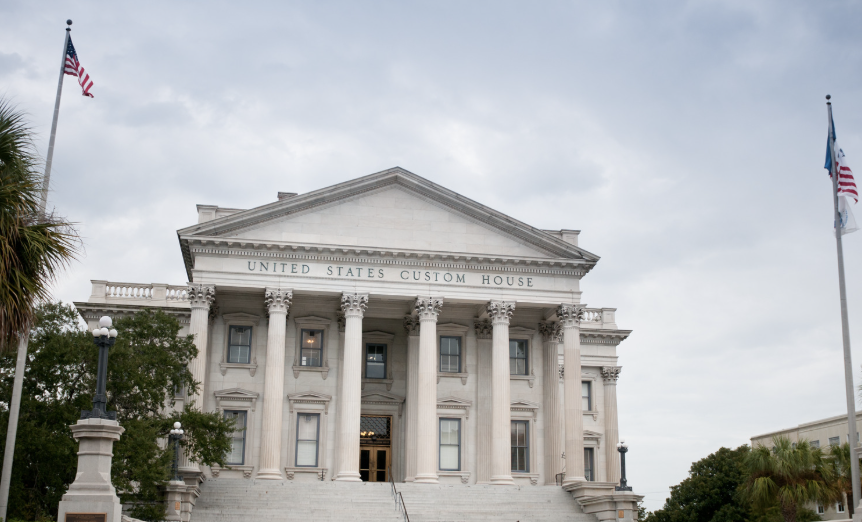Introduction to the Legal Development
In a notable legal outcome, a federal appeals court has invalidated a contentious immigration policy introduced by the Biden administration, which imposed stringent limitations on asylum claims from migrants traversing the southern border. This development marks a notable moment in the ongoing debate surrounding immigration policies and border security, with potential ramifications for both migrants and U.S. legal frameworks. The ruling, delivered by the Ninth Circuit Court of Appeals, has reignited discussions about the balance between national security and humanitarian obligations.
Overview of the Asylum Policy
The policy in question was enacted earlier this year and mandated that migrants must apply for asylum in a third country they passed through before they could request refuge in the United States. Critics of the policy argued that it effectively barred many asylum seekers from obtaining necessary protection under U.S. law, thus violating both domestic legal standards and international obligations regarding the treatment of refugees. This regulatory change has faced significant scrutiny, especially in light of the ethical implications of denying humanitarian aid to those in perilous situations.
Court’s Ruling and Justification
In a 2-1 decision, the Ninth Circuit Court ruled that the Biden administration’s policy was “inconsistent with the statutory framework established by Congress.” Judge Maria Gonzalez, who authored the majority opinion, emphasized the need for the United States to honor its legal and moral commitments to asylum seekers. The ruling highlights a critical perspective, suggesting that the implementation of such policies must not ignore the rights of vulnerable individuals, irrespective of the political circumstances surrounding immigration.
Biden Administration’s Response
In response to the ruling, the Biden administration expressed disappointment but confirmed its intention to comply with the court’s decision while contemplating a potential appeal to the Supreme Court. Officials argued that the policy was essential to manage the skyrocketing numbers of migrants at the southern border. This stance illustrates the administration’s complex balancing act between maintaining border security and upholding humanitarian obligations to those seeking asylum.
Reactions from Immigration Advocates
Immigration advocates received the court’s ruling with approval, viewing it as a significant win for human rights. Erin Martinez, the director of Refugee Justice Alliance, stated that the ruling serves as “a lifeline for vulnerable individuals and families fleeing persecution and violence.” Many advocates contend that the asylum policy disproportionately affected migrants from Central America, a region plagued by systemic violence and instability, thereby heightening the urgency of their plight.
Critique from Opponents
Conversely, opponents of the ruling—including many Republican lawmakers and border security proponents—have criticized the court’s decision as counterproductive to efforts aimed at securing the border. Senator Tom Baker articulated that the ruling was “reckless and shortsighted,” suggesting it would exacerbate the ongoing crisis at the border rather than alleviate it. This response reflects broader divisions within U.S. society regarding the handling of immigration and border security.
Implications for U.S. Immigration Policy
Legal analysts warn that the implications of the Ninth Circuit’s decision could significantly reshape U.S. immigration policy. If upheld, the ruling may enable thousands of migrants currently caught in limbo to have their asylum claims evaluated in U.S. courts. However, the administration’s anticipated appeal to the Supreme Court could complicate matters, potentially reinstating the policy while subjecting it to further legal scrutiny. As the nation prepares for the 2024 presidential election, immigration is likely to remain a central issue, intensifying the legal and political battles surrounding it.
Conclusion
The recent ruling by the Ninth Circuit Court of Appeals represents a critical juncture in the ongoing dialogue about U.S. immigration policy and the treatment of asylum seekers. With rising numbers of migrants at the southern border, the administration must navigate a complex landscape that involves both maintaining security and fulfilling humanitarian responsibilities. The future of America’s asylum system remains uncertain, with potential legal challenges ahead that will shape the nature of immigration in the years to come.
FAQs
What was the Biden administration’s asylum policy?
The policy required migrants to apply for asylum in any third country they passed through before seeking refuge in the United States. It aimed to manage increasing migrant encounters at the southern border.
What was the court’s decision regarding this policy?
The Ninth Circuit Court issued a 2-1 ruling stating that the policy was inconsistent with U.S. law and did not adequately protect the rights of asylum seekers, thereby striking it down.
What are the implications of this ruling for asylum seekers?
If upheld, the ruling could allow thousands of migrants who were previously barred from accessing U.S. asylum courts to have their claims heard, ensuring they receive necessary legal consideration.
How did the Biden administration respond to the ruling?
The Biden administration expressed disappointment in the ruling but stated it would comply with the court’s decision while evaluating the possibility of appealing to the Supreme Court.
What are the potential political ramifications of this ruling?
The ruling could serve as a significant topic leading into the 2024 presidential election, highlighting the ongoing division in U.S. society over immigration policy and border security strategies.

